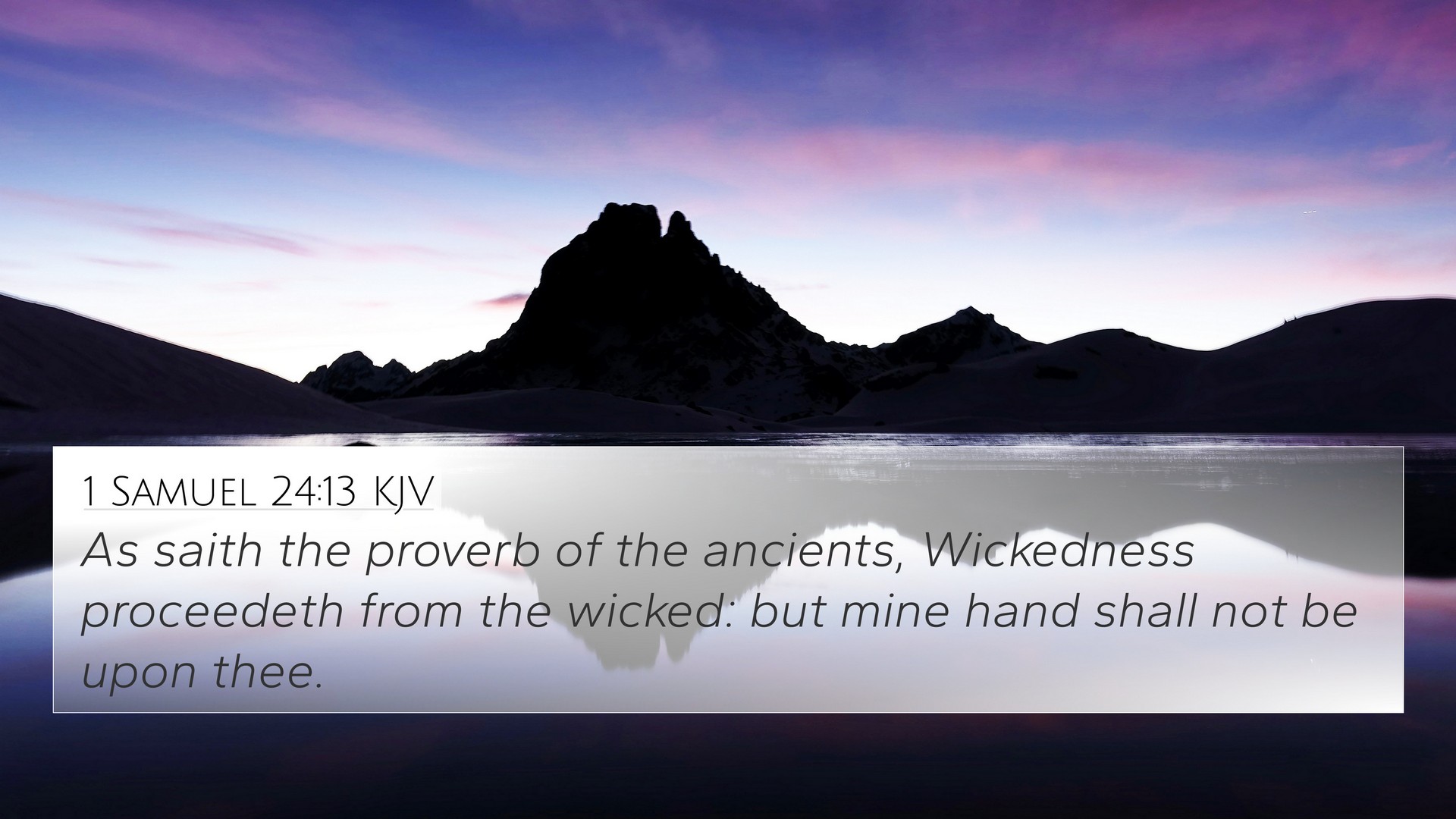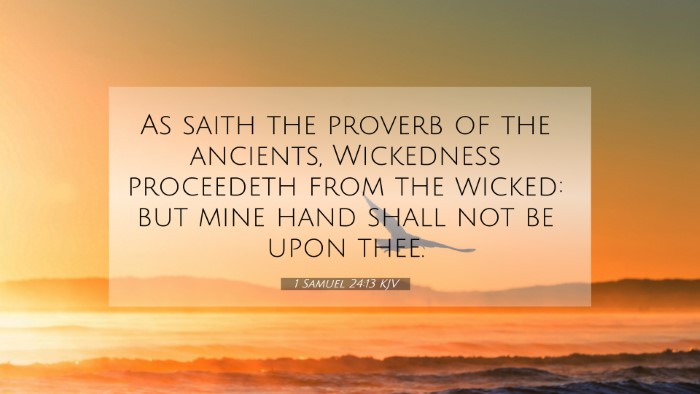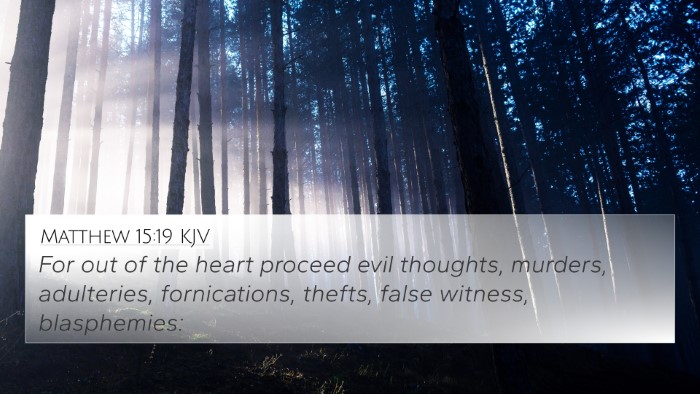Understanding 1 Samuel 24:13
Verse: 1 Samuel 24:13 - "As saith the proverb of the ancients, Wickedness proceeds from the wicked: but mine hand shall not be upon thee."
Summary of Meaning
This verse illustrates the theme of faith, mercy, and divine justice amidst human conflicts. David, in this moment of confrontation with Saul, embodies the principles of righteousness and humility. Despite having the opportunity to harm Saul, David refrains, highlighting his trust in God's judgment.
Insights from Commentaries
- Matthew Henry: Henry emphasizes that David's respect for Saul's position as the Lord's anointed reflects a deep understanding of divine authority. He argues that David's restraint reveals a clear conscience and a faith-based perspective that prioritizes God's will over personal vengeance.
- Albert Barnes: Barnes points out that the proverb David quotes underscores the natural consequence of wicked deeds. He interprets this as David recognizing Saul's wickedness while maintaining his own integrity by choosing mercy instead of malice.
- Adam Clarke: Clarke interprets the phrase "wickedness proceeds from the wicked" as a reminder of human nature and moral corruption. He discusses David's perspective, which implies that although Saul has acted wrongfully, David is committed to maintaining his own righteousness, looking instead to God for justice.
Cross-References for Deeper Understanding
This verse connects with several others in the Bible, providing a robust framework for its interpretation:
- Psalms 37:1-2: David reassures himself not to fret over the evildoers, for they will eventually wither away.
- Psalms 94:23: God's justice will return wickedness upon the wicked, reaffirming the principle of divine retribution.
- Luke 6:27-28: Jesus teaches about loving one's enemies and doing good to those who hate you, reflecting the same principles as David's actions.
- Romans 12:19: Paul echoes the sentiment of not avenging oneself but leaving it to God’s wrath, aligning with David's response to Saul.
- 1 Peter 2:23: This verse about Jesus highlights His response to insults and suffering, akin to David's restraint with Saul.
- Proverbs 24:17: The proverb teaches not to rejoice at the downfall of your enemy, reflecting David’s compassion.
- Matthew 5:9: Blessed are the peacemakers; those who design peace, like David, will be called the children of God.
Connecting Themes and Applications
This passage encourages believers to reflect on themes such as:
- Faith in Divine Justice: Trusting that God observes our actions and will administer justice in His perfect timing.
- Integrity in Conflict: Advocating for peace, even in the face of adversity, as a testament to one’s faith.
- Mercy over Retribution: Emphasizing the importance of showing mercy, as it aligns our hearts with the character of God.
Thematic Bible Verse Connections
Many other scriptures corroborate the themes found in 1 Samuel 24:13. When studying the Bible, identifying these connections can deepen your understanding of Biblical teachings and their application today:
- Forgiveness: Matthew 18:21-22 highlights the need to forgive others continually, reflecting God's grace.
- Righteousness in Adversity: 2 Samuel 16:12 shows further aspects of David’s life, where he endures curses with a humble spirit.
- Suffering in Silence: Job 31:29-30 emphasizes the importance of not rejoicing over the misfortunes of others, akin to David’s restraint.
Using Bible Cross-References
The verse serves as an excellent case study for understanding the practice of cross-referencing in the Bible. Here are several tools and methods:
- Bible Concordance: Use concordances to find words related to ‘wickedness’ or ‘righteousness’ to discover related passages.
- Bible Cross-Reference Guide: Refer to guides that point out verse relationships based on themes and principles evident in scripture.
- Cross-Reference Bible Study: Engaging in group studies that explore related verses can enhance communal understanding and dialogue.
- Comprehensive Bible Cross-Reference Materials: Utilize resources that list cross-references for deeper study into Biblical books and verses.
- Cross-Referencing Bible Study Methods: Apply methods such as thematic studies or verse mapping to uncover connections.
Conclusion
1 Samuel 24:13 reveals profound truths about human nature, divine justice, and the practice of mercy. It encourages readers to explore related scriptures through cross-referencing and thematic connections to gain a fuller understanding of God's Word and its implications for their lives. By studying these inter-Biblical dialogues, believers can cultivate a deeper faith as they learn to navigate their own challenges in reflection of David's experience with Saul.






